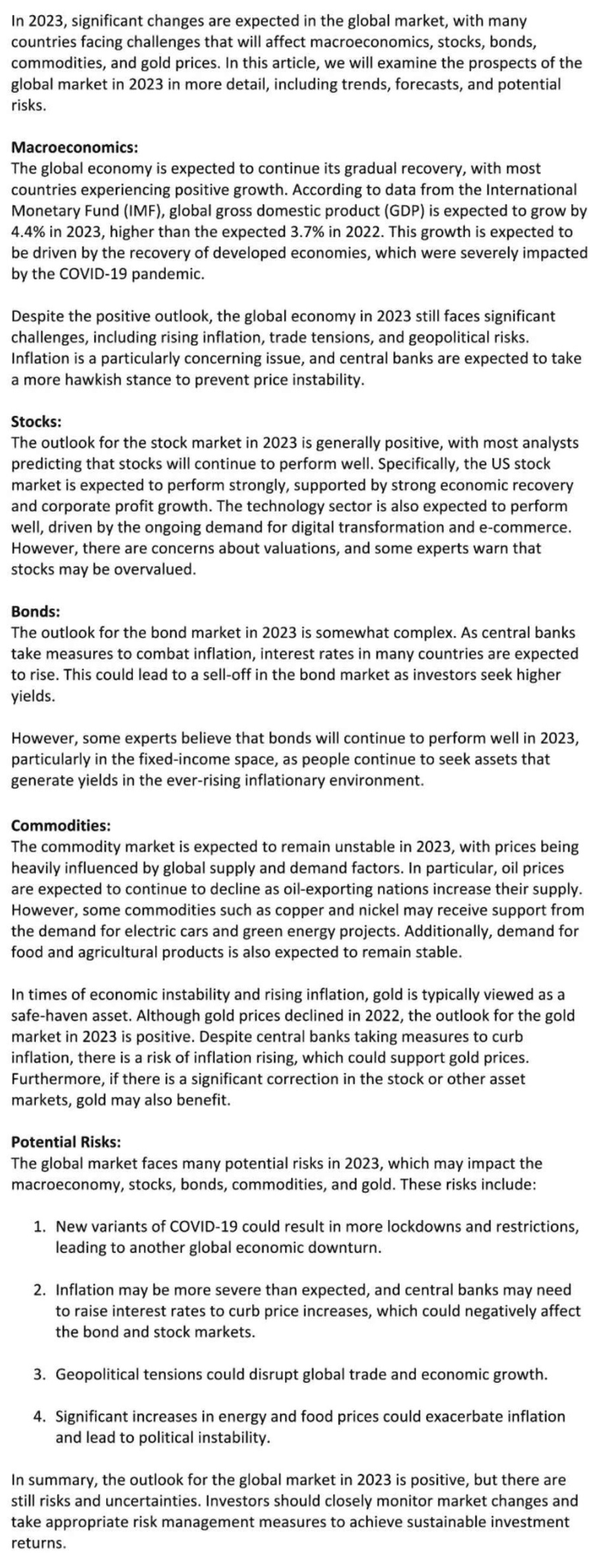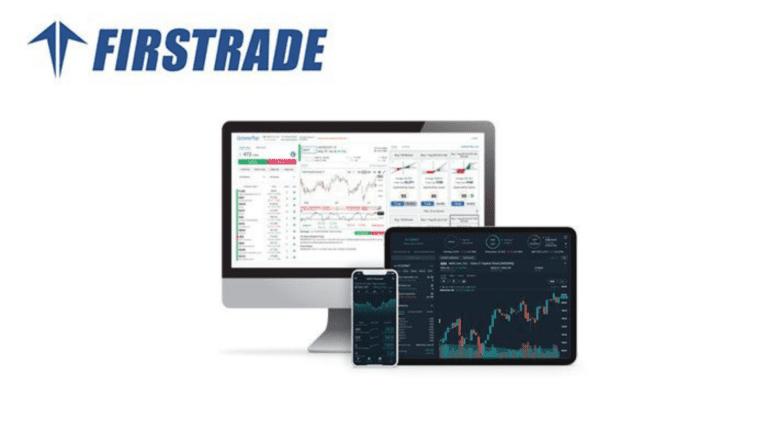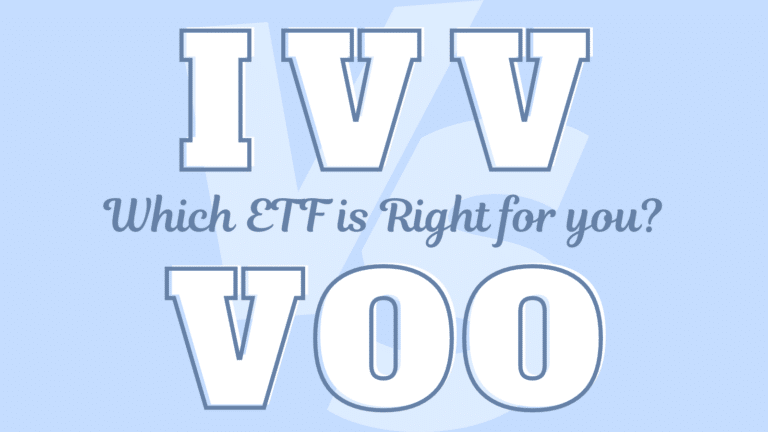Since its development by OpenAI in December 2022, the language model, ChatGPT, has been on everyone’s lips. It’s regularly making headlines across diverse media platforms. Interestingly, its use is not restricted to mere chats or tasks, as people have begun to use ChatGPT to invest and even trade stocks. The key question is, can ChatGPT truly provide insightful market analysis or even predict market trends?
In a bid to answer this question, China’s premier investment bank, China International Capital Corporation (CICC), decided to conduct a test. They put ChatGPT through a rigorous assessment to understand how it would fare in the realm of investing.
The CICC tasked ChatGPT with two distinct responsibilities. The first one involved independently drafting a complete market analysis article. For the second task, ChatGPT was required to answer queries about the article’s content during a roadshow.
With these tasks laid out, the big question is – did ChatGPT make the grade? Let’s delve deeper and find out!
ChatGPT’s Insight and Projections for the Global Market in 2023
The first task assigned to ChatGPT by CICC was to draft an article titled “Market Outlook for 2023”. The piece was to be approximately 2,000 words long and touch on the current global economic climate. Additionally, it needed to elaborate on the implications of this climate on various market sectors, including stocks, bonds, commodities, and gold.
In response, ChatGPT produced an article that deeply explores the prevailing global economic landscape and its real-time impacts on the aforementioned markets. Let’s delve deeper.

ChatGPT’s “Virtual Roadshow”
After completing the article, ChatGPT embarked on a “virtual roadshow” with CICC. This interactive session touched on hot-button issues such as the policies of the U.S. Federal Reserve, prospects of recession, and inflation. The primary aim was to assess whether ChatGPT could comprehend its own written content and respond effectively to relevant questions.
As ChatGPT is fundamentally a chatbot, this Q&A provided a prime opportunity to demonstrate its prowess in macroeconomic analysis. The finale of the roadshow saw a stimulating debate between CICC and ChatGPT, where the focus was on the potential decline of the U.S. economy in 2023 and the likelihood of the Federal Reserve lowering interest rates.
ChatGPT held the position that the U.S. economy would remain stable and that the Federal Reserve wouldn’t resort to interest rate cuts in 2023. This stance was met with differing views from CICC, challenging ChatGPT’s perspective. However, ChatGPT was able to defend its assertions, thereby showcasing its grasp of the topic.

The Real Question: Can You Use ChatGPT to Invest?
When writing an article analyzing the market and predicting trends, CICC provided minimal guidance. Instead, they tasked ChatGPT directly with crafting a “propositional essay” on a given topic. Impressively, ChatGPT rose to the occasion! Its article boasted a well-structured format, easy-to-follow content, and a thoughtful assessment of possible risks.
It shed light on some of the pressing concerns that have been plaguing investors of late, such as the pandemic, inflation, and escalating interest rates. ChatGPT addressed these issues with clarity and conviction, substantiating its arguments with concrete evidence and logical reasoning.
However, the roadshow section presented some hurdles. There were instances when CICC contested ChatGPT’s perspectives and pointed out a few factual inaccuracies and logical inconsistencies in its arguments. To its credit, ChatGPT conceded its errors and fortified its standpoint with fresh evidence.
Nonetheless, I believe there’s still scope for ChatGPT to hone its skills in independently analyzing macro markets. It does hold potential, but I perceive a few hurdles that are currently keeping it from reaching its full capabilities.
Related Reading: Will AI Replace Traders? Assessing the Impact of AI in Trading
Abundant Knowledge, Questionable Accuracy
Being an artificial intelligence, ChatGPT boasts a wealth of knowledge about fundamental economic principles and recent market trends. However, it often falls short when it comes to information accuracy, thereby reducing the reliability of its analysis. For example, it misinterpreted IMF data for the World Economic Outlook (WEO) and misplaced the timing of the 2020 economic recession.
The accuracy of information is the cornerstone of any market analysis and prediction. Imprecise content could steer investment decisions astray, which can prove costly. Hence, it’s crucial to approach with caution and verify the content thoroughly before using ChatGPT to invest or making significant decisions.
Adept at Simple Reasoning, Lacking in Complex Analysis
ChatGPT shows proficiency in understanding fundamental relationships between economic variables. For instance, it recognizes that a robust economy benefits the stock market, whereas a struggling economy typically spells trouble. Yet, when it comes to a complex interplay of factors, ChatGPT’s analytical capabilities appear less reliable.
For example, ChatGPT might argue that a stock price thrives even when the economy is underperforming, provided the company’s profits are sound. However, it overlooks that an economic downturn can adversely affect those corporate profits. When confronted with several factors exerting opposing effects, ChatGPT falters in identifying the dominant driver. It often highlights the multitude of factors and then leans heavily on the one it supports, which unfortunately undermines the robustness of the analysis.
Well-Versed in Market Focus, But Novel Insights Are Missing
ChatGPT possesses the capability to address the key topics that have been the market’s focal point in recent years, both in its written content and presentations. However, its offerings are somewhat predictable. It echoes sentiments largely already known to the audience, with its content noticeably lacking in fresh perspectives and novel insights.
For effective market analysis and predictions, it’s paramount to identify and present significant market shifts from a distinct vantage point. Simply put, the true value of market analysis lies in its ability to offer a fresh interpretation of events. Merely parroting commonly known information tends to diminish the worth of the analysis.










